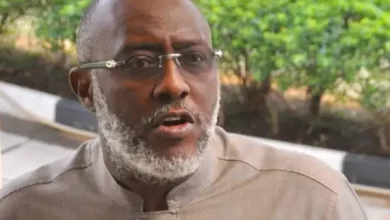
EXPLAINER: How could allies support Netanyahu in defending himself?
Benjamin Netanyahu, a former Israeli prime minister, is expected to run for government again. From there, he would attempt to use new legislation put up by his far-right and ultra-Orthodox friends to solve his decades-long legal problems. Such a court battle is seen by some as an attack on Israel’s democracy.
A dependable and comfortable governing majority would certainly support Netanyahu, 73, who is on trial for corruption and possibly provide him a reprieve from punishment.
Abolishing the delicate balance of powers that holds lawmakers in check, according to those who defend the legal system, would empower them to misuse their position.
According to Amir Fuchs, senior researcher at the Israel Democracy Institute think tank in Jerusalem, “it takes us to a position where our whole democracy comes down to elections, but once you are elected you may do anything you want.” “In any democracy, that is not a typical circumstance.”
The court system is seen by Israel’s right wing as an interventionist, left-leaning obstacle to its legislative agenda, and it has long pushed to be changed. A road for these improvements has now been made obvious by the likely coalition’s composition.
In three scandals involving affluent cronies and significant media moguls, Netanyahu is facing charges of fraud, breach of trust, and receiving bribes. He has claimed that the legal system and law enforcement are conducting a witch hunt against him while denying any wrongdoing.
According to Netanyahu’s political adversaries, claims of politically motivated prosecutors and judges are part of an effort to undermine the public’s confidence in the judicial system.
According to Netanyahu, the planned legal amendments won’t affect how his case turns out. He is constrained from interacting with the legal system while he is in court by a conflict of interest agreement, however it is uncertain if that will be upheld.
The following list of legal strategies might support Netanyahu:
INTERFERENCE CLAUSE
The most divisive amendment would affect Israel’s Supreme Court, which some claim would be a direct attack on Israel’s democracy.
Netanyahu’s allies claim that the Supreme Court intervenes much too often to overturn conservative policies. They contend that because voters elect their legislators, the Supreme Court’s challenge of those statutes is an insult to the will of the people.
Israel does not have a constitution; instead, it has a series of “fundamental laws” that protect rights and liberties. It is the responsibility of the courts to ensure that legislation complies with the relevant laws. Minorities and other organizations are considered as having one last chance to challenge laws they believe to be discriminatory before the Supreme Court.
The override provision, which is anticipated to be among the coalition’s first moves, would enable the administration to regard certain Supreme Court rulings as advisory only. Under the still-under-negotiation plan, the coalition would have the absolute right to overturn decisions with any majority, thereby dismantling Israel’s system of checks and balances.
The government may adopt other amendments to the statute that might exonerate Netanyahu after the override provision is approved, according to Yaniv Roznai, a legal professor at Reichman University outside Tel Aviv.
“FRANCES LAW”
A proposal being drafted by Netanyahu’s supporters would delay prosecuting a sitting prime minister for suspected crimes until after he leaves office. The term “French law” refers to the immunity enjoyed by presidents in France.
Israeli prime ministers in office may face charges. However, unlike in France, Israeli leaders are not subject to term limitations, therefore the protection of immunity may extend for many years. With 15 years in office, Netanyahu has been Israel’s prime minister the longest and he has no intention of stepping down.
A prime minister might face prosecution under the idea, although corruption-related offenses are not included. The scholar Fuchs said that gives the legislation the appearance of being created just for Netanyahu.
PENALTY CODE AMENDMENT
In three separate incidents, fraud and breach of trust have been charged against Netanyahu. Netanyahu’s supporters have vowed to get these charges removed from the criminal code.
They contend that the offence is vaguely defined and leaves too much discretion to the judge in determining whether to convict. They claim it puts MPs at an undue risk of unfair prosecution.
According to critics, dropping the accusation would take away a protection against corruption. They contend that focusing just on the accusation against Netanyahu might weaken the rule of law and pave the way for other modifications to the legislation to protect other legislators.
Former Israeli chief public defense Yoav Sapir said that expunging an infraction has a back-effect. That may result in the dismissal of two out of three of Netanyahu’s cases and the dropping of accusations in all three of his cases.
THE ATTORNEY GENERAL’S RECONFIGURATION
Today, Israel’s attorney general is entrusted with safeguarding the public interest from any damage presented by government authorities while also advising the government on the legality of laws and acting as its legal counsel in court. The government appoints the attorney general, who must get approval from a qualified committee made up of former justice department employees and others.
Netanyahu’s supporters seek to create three different posts for the attorney general, at least two of which would be filled by political nominations.
Gali Baharav-Miara, the current attorney general, was chosen by the departing administration and she seems to have supported the decision to charge Netanyahu. Additionally, separating the role would keep her in office until the end of her term in 2028 while transferring part of her duties to a political appointee who may decide to terminate the trial. Firing her is difficult and undesirable from an image standpoint.
LARGE LEVERAGE
In the more difficult than anticipated negotiations presently taking place to establish a government, Netanyahu’s legal issues provide his potential coalition partners enormous influence.
His backers are requesting powerful portfolios in the areas of military, finance, and public safety. Additionally, they seek to legalize gender segregation in certain public areas and enhance government stipends for tens of thousands of ultra-Orthodox Jews who choose to study Jewish scriptures over finding employment.
Far-right and ultra-Orthodox parties may hold the key to Netanyahu’s legal rescue, giving them significant influence over the policies of the next administration and the direction of Israel.





This is something
Yh
No probs
Ok
Yo
Ok
Be careful
Wow
Wow
Ok oo
Wow
Hmmm
ok
Cool
Cool
Wow
Cool
Nice one
Go
Never
Responsible
Mever
Nice
Good
something what
Cool
Cool 🆒
Okay
Nice
Good
Yes right
Good luck anyways
This is serious
Good
They know what they are doing
yes
Hmmm
Ok
I just hope Israel gets better!
Good
I just hope Israel as a nation gets better!
sup
Is everywhere o
It good for him
Hmmmm
Okay
Goodluck
Dat maybe good idea
Problem everywhere
Ok
Okay
Hmmmmm
Okay
good
Nice
Good
Great
Cool
Good
Nice
Fine
Okay
Great
Keep the good job going
Hmmm
Goodluck
Cool
Ok
Good
Fabulous
That’s rediculous
xuo
Amazing
Ok
Alright
Alright
Alright Really nice
Fantastic
Good
Good
Yh
Not bad
Good
Good
Alright
Very sweet
Defending himself
Cool
Good
Good luck to them
Wonderful
Good
Great
Good
Mad
Great
Okay
Good
Good
Great
Crime😭
Nice
Good
Great
I wonder ooo
Are u pulling my legs
Hmmm
Cool
Wowwww
That’s really nice
Hmmmmm. It’s well
Nice
Okay
Good
OK
It’s ok
Nice
Good citizen
That’s really bad
Beautiful
Teamwork
Awesome
Good
Strategies
And again
Cool
Woah
Wow
CRIME IN DISGUISE
Alright
okay
Lovely
Awesome
Wowed 😁
November
Okay
Lovely
Gud
Nice
Justice
Interesting
Nice
The allies may have reason for supporting Nehanyatu.
Ok
Our world
Okay
Cool
Good
Okay
Good
Cool
Good
Splendid
Great
Just hearing this
Great
Splendid
Wow
Cool
Nice one
Ok
Intresting
Good luck
Hmmm
Great
Okay
Great
Fzhsbdhdb
It’s alright
Good
Good
Amazing
Simple
Ok
Wow
Wow
Interesting
Impressive
Interesting
Ok
View
👌
December 13
Like seriously
Ahh
Ok na
Are you serious
Good
Executive one
Nice
Wow
Support
Alright
Hmmmm
Wow
Good luck anyways
Alright
Ok
No wahala
hmmmm
Okay
Okay
Hi
Self defense
Netanyahu,the longest serving Israel’s prime minister
Good
Wow
Okay